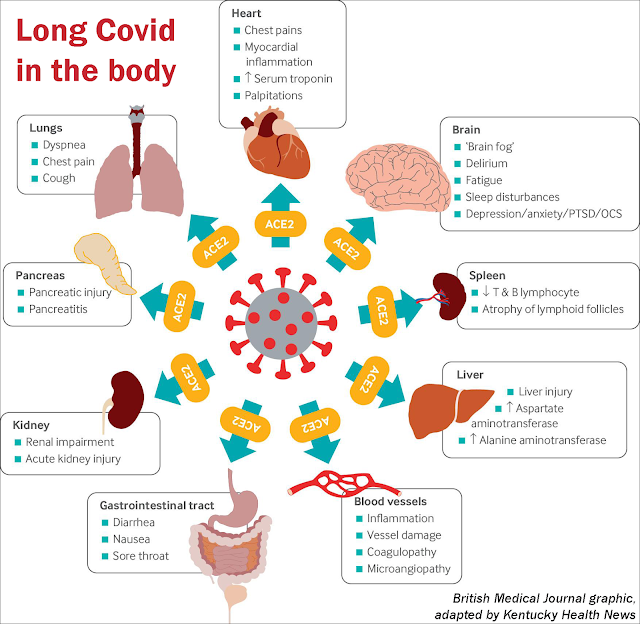Tornadoes caused unseen damage to residents’ mental health; in such cases, ramifications are often delayed, but help is available

To download a full-size version of the graphic, right-click on it.
—–
Two years ago today, “Kentucky reported its first case of Covid-19,” notes Deborah Yetter of the Louisville Courier Journal. “As the pandemic completes its second year in the commonwealth, with falling cases and more optimism for the future, the impact on long-Covid patients, sometimes called long haulers, is profound: affecting their physical health, ability to work, and emotional well-being. It also takes a toll on families. And the worst is yet to come, say some physicians who treat long haulers and predict many more will come forward to seek care in the coming months.”
Yetter adds, “Long Covid is believed to affect anywhere from 10 percent to 30% of people who contract the coronavirus. And it can affect those who have only been mildly ill, as well as those who have been hospitalized with more serious illness. While its exact cause is unknown, the effects are becoming well recognized in the medical community and to those who experience the seemingly random nature of the disorder. Conditions such as diabetes, obesity and a suppressed immune system appear to put patients at greater risk for long Covid, but that doesn’t explain all cases.” Some are young and were healthy.
Yetter’s story appeared in the newspaper’s Sunday print edition but was not immediately posted on its website. For a story in the British Medical Journal about Long Covid, click here.